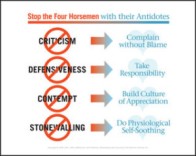Every serious academic paper on the matter of patents starts with an introduction that says something like this:
“Patents provide for a period of commercial monopoly for an invention. The key benefit of this monopoly is that the investment into the inventive technology is de-risked and therefore, across society as a whole, the development of new products and services is accelerated. A side benefit is that the key details of the invention are made public knowledge, even further enhancing the rate of technology development in society”
This is the orthodox argument for the benefits of patents in the developed world. In less developed countries, patent systems only exist because they have been either ‘suggested’ to them by the developed world, or because they know no better. Often in the undeveloped world patent rights aren’t administered very well and enforcement processes can be scratchy.
Every now and again a particularly honest and astute author will add something like this:
“Studies that have attempted to elucidate the economics benefits of patent systems to nations have failed to generate unequivocal quantitative results.” Then they will go onto say that we should have patent systems anyway, supporting these statement by the use of qualitative arguments – there is no use biting the hand that feeds.
The difficulty in modelling economic systems with and without patents is two-fold. First, there isn’t a developed country without patents to compare to, and, secondly, patents are such a complex beast from an economic perspective that any modelling quickly dissolves into assumption central.
However, the question that really matters is not whether we should have patents. They are not going anywhere any time soon because there is way too much vested interest. Even the software folks that were dead against patents must have been slightly mollified by the recent watering down of the inventiveness threshold for software patents by the US courts. So even these guys are probably off the case.
Based on my experience there are obvious inefficiencies in the patent systems that can be fixed without even addressing the BIG issue of whether we should have patents or not.
For mine, the real questions are:
1. What should be the ‘inventive’ threshold for the granting of a patent? (i.e. what is patentable subject matter)?
2. Should the inventive step threshold be different for different areas of technology?
3. Who should be the final arbiter on what is inventive, the patent offices, the courts or others?
4. What period of exclusive patent rights is viable for each area of technology?
5. How do we homogenize patent rights and enforcement across the globe?
6. Do we allow companies to have a market monopoly or force them to license?
7. Should there be a global patent office?
8. Should the threshold(s) for patentability be much tougher than it currently is?
9. Should there be damages or injunctions for wilful patent infringement?
10. Should a non practising entity be able to enforce patent rights?
11. What other penalties should there be for patent infringement?
My answers – depends, yes, patent offices, depends, getting patent disputes out of the courts, license, yes, yes, yes but only after some sort of three-strike rule where the infringing party has refused to acknowledge mediated license negotiations, yes, company directors should have personal liabilities.
In detail:
1. . What should be the ‘inventive’ threshold for the granting of a patent? (i.e. what is patentable subject matter)?
Much higher than it is now is the right answer – more on this below. In my opinion much of what is being claimed in patents in this century simply shouldn’t be granted. The distinction between innovation and invention seems to have been lost in the ether. Over time the patent system has drifted towards the granting of patents for incremental innovations. With all the existing prior art it should be harder than ever to receive patent rights today but the opposite appears to be true.
Part of the problem is the process of patent examination. During patent examination the patent office pushes back on claims in light of prior art until they are satisfied that what is being claimed is novel – but at this stage there should be an independent re-examination for obviousness (to someone practiced in the art).
I would also like to see certain sorts of prior art rejected as being relevant. In the era of the internet it appears way too easy to find some throw-away ‘wishful thinking’ by some product forecaster that can be construed as foreshadowing a later invention. I would like to see some threshold for ‘reduction to practice’ for prior art, even if this is just a proposal, in order for prior art to be deemed relevant.
The courts seem to be able to set thresholds for inventiveness and this is done by judges, relying on so-called expert witnesses (often academics) naturally biased by their employment, that have limited experience in patenting, technology and markets, which is crazy. One of the issues is that during enforcement cases the courts get to see a lot more prior art than the patent office ever gets to see and then they use this to overturn patents and thus accidentally (or otherwise) re-setting inventive step thresholds. Removing the courts is the answer – more on this below.
I suspect that any successful effort to tighten up the thresholds for inventiveness would see the number of granted patents drop by at least a factor of 100. This is important; without such a decrease in the number of patents the rest of the suggestions below would be too cumbersome to introduce.
2. Should the inventive step threshold be different for different areas of technology?
And the answer is that in each field of technology a clear definition of inventiveness needs to be determined by way of example (case studies, precedent, call it what you will). There is no use attempting to come up with a broad and universal linguistic-technical structure of inventiveness for all areas of technology – it just doesn’t work. This proposed process of determining a field-by-field thresholds for inventiveness needs to be done some world-wide committee of genuine experts in each field, sort of like a standards committee.
3. Who should be the final arbiter on what is inventive, the patent offices, the courts or others?
We badly need to get the courts out of the patent world. The patent offices should be the ultimate determiners of what is inventive since this is their explicit expertise. The patent office should get to determine what is inventive when a patent is granted and they should get to review this when a case is in dispute and new prior art is discovered.
In addition to (a) the patent offices, we could have (b) the aforementioned world-wide standards bodies for setting inventive step thresholds (by way of precedent) in each field, (d) a commercial patent disputes mediating body, and (d) possibly a global umbrella body controlling all of these.
4. What period of exclusive patent rights is viable for each area of technology?
Just like the inventive step solution I believe the period of exclusive rights should reflect the differences between fields of technology. For example software breakthroughs can often be developed to products in less than a year and then be obsolete within five. Whereas a new drug can take 15 years of more to get to market. The same body that determines the inventive step threshold in each field could also determine the appropriate period of patent rights in each field.
5. How do we homogenize patent rights and enforcement across the globe?
Simply by getting the courts out the picture. Since the courts in each nation are not, and never will be similar in their processes there can never be a uniform global patent system until they are removed from the patenting world. Right now we have the silly situation where patent costs are accrued separately in each country and where patent rights are both granted and enforced differently in each country. It’s an expensive mess that just happens to favour large corporations with deep pockets thus disenfranchising the smaller tech companies that are the real engine room of inventive technology. The situation also allows countries such as Australia and China to allow parties to ignore patent rights when it suits them by having complex, slow, and very costly patent enforcement processes with limited damages for infringement.
6. Do we allow companies to have a market monopoly or force them to license?
The idea of a product monopoly in the 21st century makes no sense. We should allow for investment capital to follow all inventions so that product costs are brought down as quickly as possible and therefore the benefits of invention flow to society at large. Right now the world is in a race to counter climate change and the impact of diminishing resources – we cannot afford to put barriers in the way of technology development.
By this proposal the concept of wilful infringement would disappear altogether. Any party could invest in a patented technology even if that patent is not theirs, but in the knowledge that the likely commercial outcome would be enforced license fees which they can’t get away from. By this approach a market for patents as assets would flourish since income from license fees could be more accurately modelled and the general value of patents would increase (due to the higher thresholds for invention and easier to model license revenues). Creating a viable market for patents as assets would help fast-track general inventiveness over the current situation where there is a global over-investment into more trivial innovation.
7. Should there be a global patent office?
As stated above, yes. We need a global patent with low costs and much higher diligence in the examination process which would reduce later disputes. The US system of crowd-sourcing prior art during examination is a great one that needs to be adopted globally. Not only do we need a global patent office, we also need a global standards committee for setting the inventive step threshold and the patent term in each field of technology. And then also a patent disputes mediation group recognised under law in each country.
But as I said earlier, there is no point unifying the patent granting process if we still have the process where enforcement is left to local courts. What’s the point of having the same patent for every country if it is interpreted differently with respect to enforcement?
8. Should the threshold(s) for invention be much tougher than it currently is?
As stated above, without a doubt. Today we have the situation where there is a ‘long-tail’ of patent value. i.e. where a small fraction of patents have real value and the majority have negative value. There is a ‘stalled’ market-place for trading patent assets because no one knows which patents are the valuable ones. Where there is no market place it is generally the case that there is an asset class that is genuinely in trouble, reflecting a system that needs fixing.
9. Should there be damages or injunctions for wilful patent infringement?
There needs to be a quick global process for mediating alleged patent infringement followed by enforced licensing. Only if a party has been thrice warned for not paying license fees would the matter be referred to a national court for injunctions, enforced licensing and claims of damages. In that court there should be no process allowed for invalidating a patent; that would be reserved for the mediation organisation.
10. Should a non practising entity be able to enforce patent rights?
Of course. Universities, backyard inventors, patent acquirers and the like should all be able to invest in and license their patented technology. In a system where licenses are enforced this would be their sole path to monetisation of their patent rights, except for where a party ignores patent mediation outcomes or where they sell their patent assets.
11. What other penalties should there be for patent infringement?
For parties that ignore enforced licensing notices and that have been taken to court for damages and/or injunctions, the penalties should extend to personal liability for company directors, or even criminal charges (in every country). This would help stop all such bad behaviour.












































































































